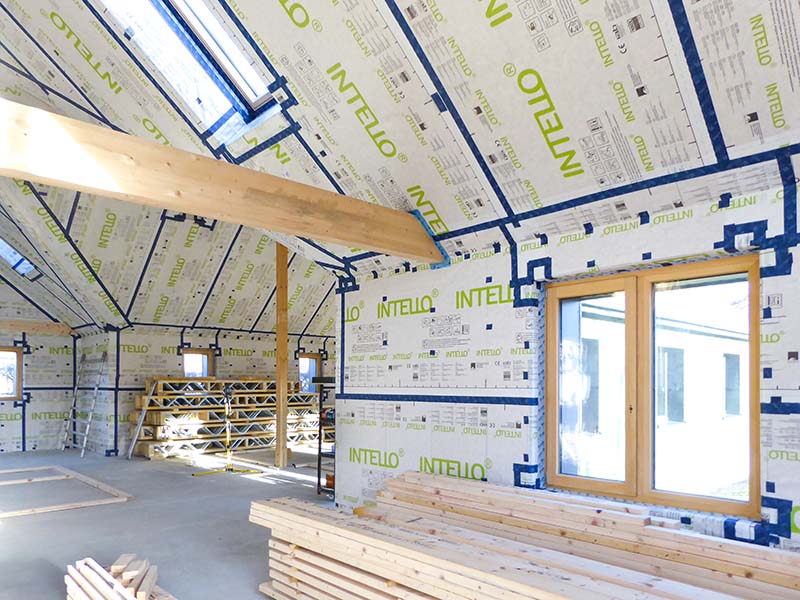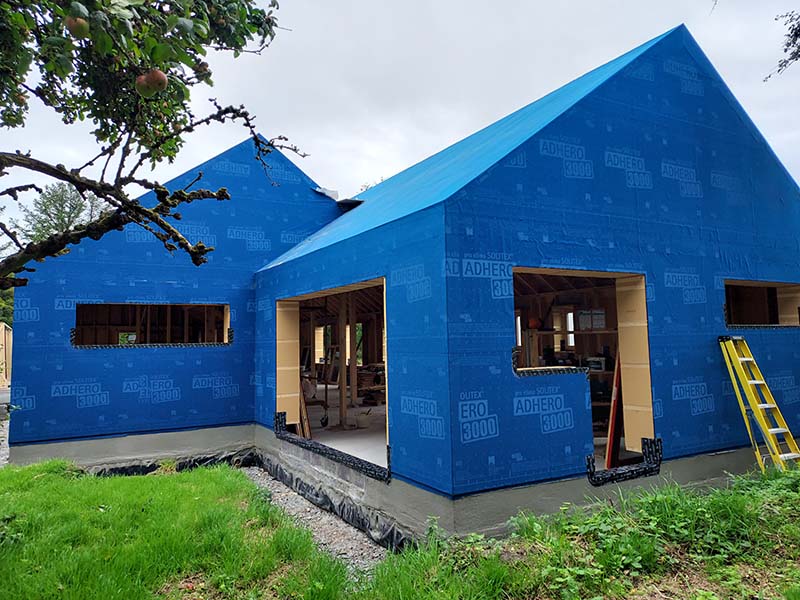
Neil Turner, technical sales manager for Ecological Building Systems, explores the role of EPDs (Environmental Product Declarations) in supporting the construction sector’s move towards truly sustainable buildings
THE UK construction industry is working to achieve net zero by 2050. This requires a fundamental shift to low carbon materials and sustainable building design, as the government has set a target of 100% reduction in greenhouse gas emissions compared to 1990 levels.
To help achieve this objective, EPDs are becoming an essential resource for architects, builders and specifiers, helping them to identify products with verified sustainability credentials. Their role is especially critical in Passivhaus projects, where thermal performance and energy efficiency are key priorities.
What is an EPD?
An Environmental Product Declaration is a comprehensive document that provides transparent and independently verified information about a product’s environmental impact across its entire lifecycle. This covers aspects such as resource consumption, emissions, waste generation and other ecological factors, from raw material extraction through to end-of-life disposal.
EPDs are designed to support architects, builders and other stakeholders in the construction industry by offering factual and verified information. By delivering clear insights into the environmental performance of products, EPDs help professionals to select products that meet specific sustainability criteria, a critical factor in meeting the demanding standards of Passivhaus certification.
As a result, architects can not only assess the immediate environmental impact of construction materials, but also consider the long term benefits, including potential cost savings, improved energy performance and reduced carbon footprint over the building’s lifecycle.

Pro Clima range
Ecological Building Systems has been a leading distributor of Pro Clima airtightness and windtightness solutions for many years and has a longstanding partnership with the company. Pro Clima has recently announced EPD certification for a wide range of its airtightness and windtightness products, representing one of the most comprehensive sets of independently assessed solutions available on the market.
A key product now covered by EPDs is Pro Clima Intello Plus. It is an intelligent airtight vapour control membrane that promotes higher levels of safety against condensation and mould risk, allowing up to 100x more moisture vapour to escape compared to conventional vapour control membranes with fixed diffusion resistance.
In addition to membranes, Pro Clima has also achieved EPD certification for a number of its sealing tapes like Tescon Vana, and sealants such as Orcon F, providing even greater transparency and accuracy for carbon assessments.
Achieving EPD certification ensures that Pro Clima’s airtight and windtight solutions support compliance with leading green building standards such as LEED, BREEAM and the EU’s Sustainable Product Policy.
Transparency in sourcing sustainable building products
As the construction industry moves further towards net zero, the demand for transparency in product sourcing and environmental impact is set to increase. EPDs will play an essential role in meeting these requirements, providing the necessary data to support sustainable building practices.
With increasing numbers of architects specifying products with EPD certification, there is an important move towards achieving higher sustainability standards.








